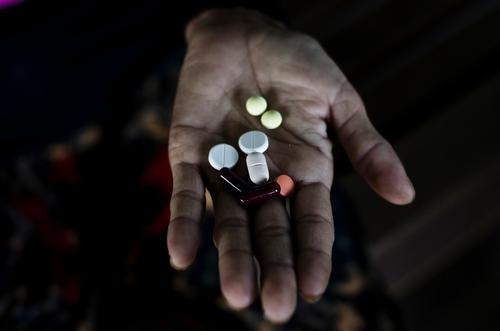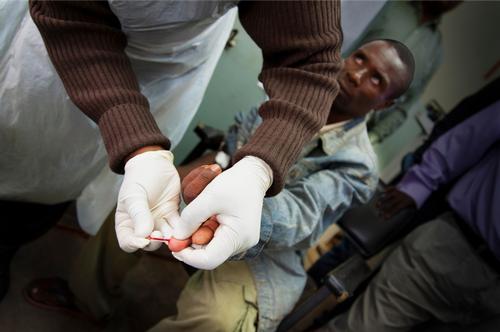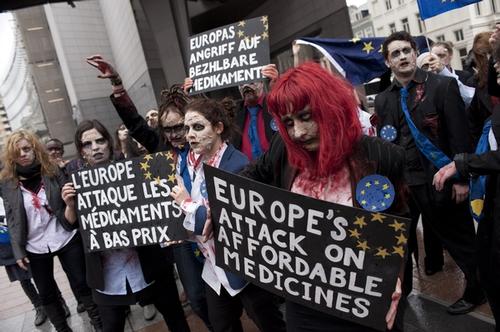26 September 2014, New Delhi/New York – As Indian Prime Minister Narendra Modi makes his first official visit to the United States, Médecins Sans Frontières/Doctors Without Borders (MSF) is urging the Indian government to resist U.S. pressure to drop the use of public health safeguards in its intellectual property laws, which have enabled India to become the ‘pharmacy of the developing world.’ India supplies affordable generic medicines to people and governments worldwide, including to MSF’s medical humanitarian projects, which are present in more than 60 countries.
As Indian Prime Minister Narendra Modi makes his first official visit to the United States, Médecins Sans Frontières/Doctors Without Borders (MSF) is urging the Indian government to resist U.S. pressure to drop the use of public health safeguards in its intellectual property laws, which have enabled India to become the ‘pharmacy of the developing world.’ India supplies affordable generic medicines to people and governments worldwide, including to MSF’s medical humanitarian projects, which are present in more than 60 countries.
“India’s production of affordable medicines is a vital life-line for MSF’s medical humanitarian operations and millions of people in developing countries. India’s patent laws and policies have fostered robust generic competition over the past decade, which has brought the price of medicines down substantially – in the case of HIV, by more than 90 per cent”, said Rohit Malpani, Director of Policy and Analysis for MSF’s Access Campaign. “The world can’t afford to see India’s pharmacy shut down by U.S. commercial interests.”
The U.S., on behalf of its pharmaceutical industry, has recently stepped up pressure on India, with the U.S. International Trade Commission (USITC) initiating a fact-finding investigation this year on India’s intellectual property regime, which is seen to be undermining the interests of U.S. companies. In addition, the US Trade Representative (USTR) once again placed India on the Priority Watch List in its Special 301 Report and announced an out–of-cycle review of India’s intellectual property regime, which signals the threat of sanctions against India.
One key target of US pressure is India’s patent law which makes it tougher to get secondary patents on existing medicines, which in turn facilitates the introduction of generic competition. Another point of contention is the use of compulsory licences, a legal measure, used once by India so far, that jumpstarts generic production when patented life-saving medicines are priced out of the reach of patients.
India’s laws were changed in 2005 to comply with the World Trade Organization’s mandate for pharmaceutical patenting, and remain in line with international trade and intellectual property rules. Today India’s laws and policies are closely watched by its BRICS peers and other developing countries. South Africa and Brazil are looking to reform their laws to limit abuse of the patent system; for example, by allowing pre-grant oppositions and limiting the granting of secondary patents.
The USTR has already held several high level meetings with the Indian government around its intellectual property policies, and it is expected that Mr Modi’s will intensify dialogue on India’s approach to pharmaceutical patents and use of public health safeguards. MSF urges Prime Minister Modi to continue India’s leadership in global health, and stand firm in protecting public health in the face of mounting US pressure.






